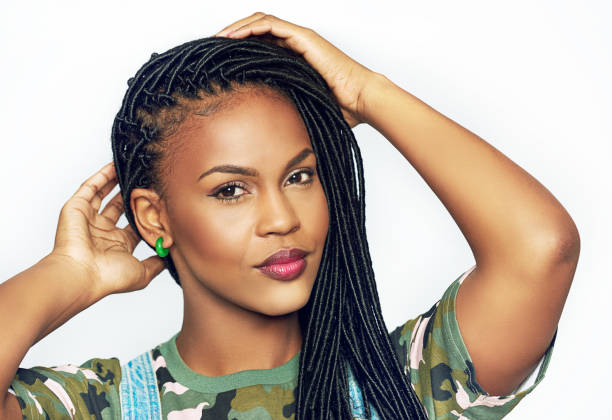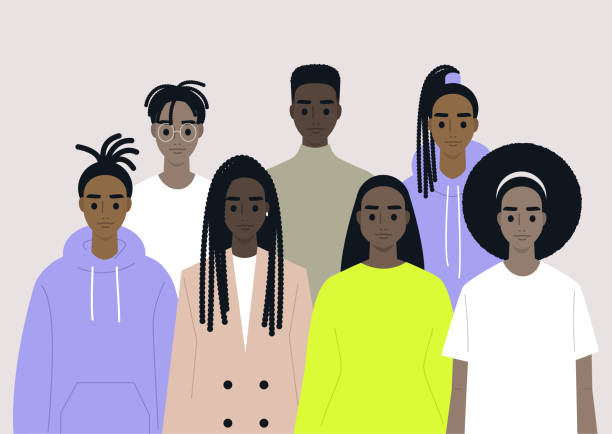
African braids hairstyles
African braids hairstyles have deep cultural significance and offer a means of self-expression for many women in Kenya.
However, in recent years, certain styles have faced scrutiny within professional settings. This blog explores which African braid hairstyles are acceptable in Kenyan offices, the societal implications of these policies, and the brave women who challenge the status quo.
Allowed African Braids Hairstyles in Kenyan Offices
In many Kenyan offices, professionalism takes precedence, leading to a specific set of guidelines regarding hairstyles. Typically, simple and neat African braids hairstyles are allowed. Styles such as cornrows, box braids, and twist-outs often meet workplace standards. These styles maintain a polished appearance and convey professionalism while allowing women to showcase their heritage.

Styles Often Looked Down Upon
Conversely, more intricate or colorful African braids hairstyles tend to attract criticism. Ghana braids, large knotless braids, and flamboyant colors often receive negative attention. Such styles are sometimes labeled as “unprofessional,” reflecting a narrow understanding of professionalism that fails to appreciate cultural diversity.
The Reason Behind Hairstyle Policies
Policies regulating hairstyles in Kenyan offices often stem from a desire to project a particular image of professionalism. However, this desire can inadvertently marginalize African braids styles that hold cultural significance. As a result, women may feel pressured to conform to Eurocentric standards of beauty, which can be disheartening and discriminatory.
Discrimination Against Women in Kenya
Many women in Kenya feel discriminated against by these hairstyle policies, which can seem arbitrary and exclusionary. The pressure to alter one’s appearance to fit workplace norms creates an environment where natural beauty is undervalued. This sense of discrimination resonates with the experiences of women worldwide, who often face similar challenges in their workplaces.
Comparing Modern Discrimination to Colonial Rules

The enforcement of restrictive hairstyle policies draws uncomfortable parallels to the oppressive colonial rules that sought to erase African identities. During colonial times, many aspects of African culture, including hairstyles, faced scrutiny and disdain. Today’s hairstyle policies can echo this legacy, perpetuating a cycle of discrimination that undermines cultural pride.
Women Standing Against the Status Quo
Despite these challenges, several courageous women in Kenya have stood against the restrictions on African braids hairstyles. Journalists like Mary Kilobi-Atwoli, Anne Ngugi, Kanze Dena, and Mashirima Kapombe have proudly worn their African hairstyles while presenting news live on air, demonstrating their confidence and cultural pride. Their fearless representation challenges conventional beauty standards and encourages others to embrace their heritage.
Mary Kilobi-Atwoli, known for her vibrant personality, often showcases stunning braids and other natural hairstyles during her broadcasts. Anne Ngugi combines her professionalism with bold hairstyles, proving that African beauty can thrive in any setting.
Kanze Dena, a former news anchor and current State House spokesperson, frequently sports traditional African hairstyles, showcasing a blend of elegance and heritage. Mashirima Kapombe also stands out with her expressive hairstyles, using her platform to inspire viewers to embrace their authentic selves.
Additionally, Wangari Maathai, the renowned environmentalist and Nobel laureate, wore her hair in dreadlocks as a statement of her African identity and a rejection of colonial beauty standards, emphasizing her connection to heritage and nature.
The Power of Representation
These women exemplify the growing movement toward embracing African hair and braids in professional settings. Their actions send a powerful message: embracing one’s heritage can coexist with professionalism. By standing up against outdated policies, they inspire others to do the same.
Read Also: Secrets to Long Hair
Pride in African Hair
In the face of ongoing discrimination, the pride in African hair remains steadfast. Women across Kenya continue to embrace their African braid hairstyles, showcasing the beauty and richness of their culture. Each braid tells a story, weaving together tradition, identity, and resilience.
As one woman shared, “Every time I wear my braids, I carry my history and my culture with me.” This sentiment echoes the feelings of many who recognize that their hair is not just an accessory but a profound expression of who they are.





